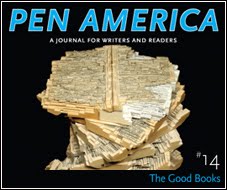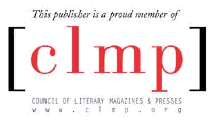Back in August, I mentioned a conversation with Judith Sollosy, who translated Celestial Harmonies, and has begun work on another novel by Péter Esterházy, No Art!
Below, she discusses Revised Edition
, subtitled “Appendix to Celestial Harmonies
,” and centered on the amazing discovery Esterházy made after finishing that book: his father, Mátyás, was an informer for the Communist secret police. (Esterházy discusses this revelation with Wayne Koestenbaum in our latest issue.)“Regardless of the cost, human or otherwise, we will continue as long as we have raw material.” This is how Péter Esterházy’s
Revised Edition begins, a quote from fellow writer Miklós Mészöly. And the raw material of
Revised Edition shocked a nation, especially affecting those who had read the author’s previous book,
Celestial Harmonies, a prose tribute to his father Mátyás as well as a work conceived in the tradition of the novel as total literature, claiming
everything as its field of play. (Once, when Esterh
ázy was asked by a TV reporter what one of his novels was about, he responded that
if a novel can be summarized, there’s something very wrong with it.)
The boundaries of
Celestial Harmonies are exceptionally broad and kaleidoscopic, just like the boundaries of the main protagonist of the book, “my father” – the generic phrase that the author applies to every male Esterházy of the past few centuries. With reference to his own father, the author closes his 841 page magnum opus with these words: “When we enter the apartment, my father is already sitting by the Hermes Baby which is clattering steadily, like an automatic machine gun, he’s pounding it, striking, it, and the words come pouring out, going pit-a-pat on the white sheet, one in wake of the other, words that are not his own, nor were they ever, nor will they ever be.” – A painful vision of dispossession, but also a magical mirage of a father’s words dancing their way toward the Spheres.
When the manuscript of Esterházy’s
Celestial Harmonies was at the typist, he decided to take a break from work (“I had reached the limits of my … capacities. It feels good, reaching your limits, except you’re just a wee bit helpless,”) and have a look at his files in the Historical Archive to see if they had anything on him, and while he was at it, to glance at his father’s dossiers as well to see if they had been wiretapped. (“Around here, everybody thinks that half of the secret police were set on their trail.”) But when a good natured official gently and hesitantly pushed three brown dossiers towards him (“a slight motion, but alarming just the same”) and he opened them, what he saw were not reports
on his father, but rather
by him. Mátyás Esterházy, who had always shown a refusal to have anything to do with the communist regime that was stifling his country, had been coerced into spying for the notorious “Section III/III” of the secret police. We have that sickening moment of realization on the part of his son to thank for the existence of
Revised Edition, which is subtitled “Appendix to Celestial Harmonies”, and about which the author says in his Preface, “If I had my way, I would like only those people to read [it]… who have read
Celestial Harmonies. Of course, the reader does whatever he wants, and as for begging, forget it,” – a typical Esterh
ázy attempt to distance himself from his material.
Since
Revised Edition is not available in English, there is a misconception that it is a novel. But it is not. It is a
happening. (In his Preface, Esterházy simply calls the book “a diary of sorts,” but he clearly doesn’t mean it.) The text proper is set in two colors; the excerpts from the father’s reports are indicated in red ink, the son’s comments and spontaneous reactions as he is reading them are indicated in black. Everything in this book is in the present tense, including the realization that “until [something] is
really finished anything can happen, everything is left wide open.”
In retrospect, there is no knowing: the father’s words at the end of
Celestial Harmonies, words that were not his own, nor would they ever be, were they part of a translation M
átyás Esterházy was working on (he made a meager living as a translator), or, were they part of an agent’s secret report? In retrospect, there is also no knowing whether the intriguing opening sentence of
Celestial Harmonies, “It is deucedly difficult to tell a lie when you don’t know the truth,” was part of the original manuscript and is meant to refer to literature as an elaborate lie, or whether it was added after the fact, and just before the novel was actually printed – in the second page proofs, let’s say? Be that as it may, taken together,
Celestial Harmonies and
Revised Edition come very close to approximating the
everything that total literature claims as its playing field, achieving a closure that leaves us wondering whether we are witnessing art imitating life, or life imitating art? Knowing P
éter Esterházy’s mischievous side, I would opt for the latter. Still, be that as it may, to “revise” a beloved father is no small thing.
Judith Sollosy is an editor at Corvina Books in Budapest and the translator of Péter Esterházy, Mihály Kornis, Lajos Parti Nagy, and István Örkény.
 Jane Ciabattari, president of the NBCC and PEN Member, has written an excellent recap of "Beyond Margins: The Critical Perspective," held in connection with the PEN Beyond Margins Awards.
Jane Ciabattari, president of the NBCC and PEN Member, has written an excellent recap of "Beyond Margins: The Critical Perspective," held in connection with the PEN Beyond Margins Awards.









